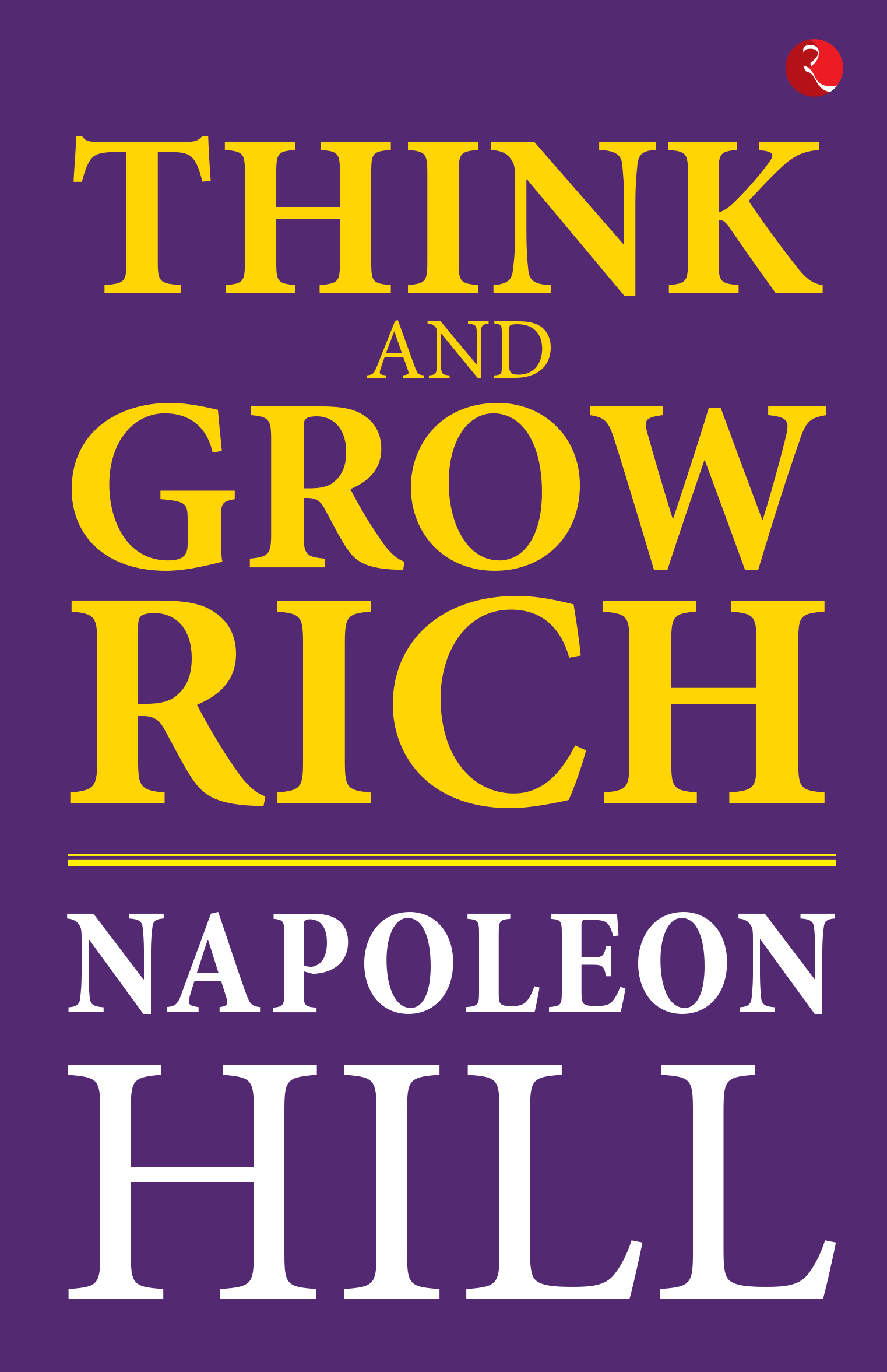
THINK AND GROW RICH
Napoleon Hill
About the Author

Napoleon Hill
Questions & Answers
Napoleon Hill's "Think and Grow Rich" outlines a "secret" to achieving wealth and success through 13 principles. The core of this secret is the power of the mind and the application of these principles:
- Desire: A burning desire for wealth, combined with faith in achieving it.
- Faith: Believing in oneself and the power of the subconscious mind.
- ** autosuggestion**: Using positive self-talk to influence the subconscious mind.
- Specialized Knowledge: Gaining expertise in a specific field.
- Imagination: Visualizing success and using creativity to achieve goals.
- Organized Planning: Developing a clear plan to achieve objectives.
- Decision: Making a firm decision to pursue a goal and sticking to it.
- Persistence: Remaining committed to a goal despite challenges.
- Power of the Master Mind: Collaborating with others to achieve a common goal.
- The Mystery of Sex Transmutation: Channeling sexual energy into creative work.
- The Subconscious Mind: Harnessing the power of the subconscious to achieve goals.
- The Brain: Using the brain as a broadcasting and receiving station for thought.
- The Sixth Sense: Developing intuition and understanding the deeper aspects of life.
By understanding and applying these principles, Hill suggests one can achieve wealth and success.
Napoleon Hill defines "definiteness of purpose" as a clear, specific, and well-defined goal that an individual aims to achieve. He emphasizes that this purpose must be both tangible and achievable. Hill explains that definiteness of purpose is crucial for success because it provides direction and focus. It helps individuals make informed decisions, prioritize tasks, and stay motivated. With a definite purpose, individuals can effectively plan and execute their strategies, leading to a higher likelihood of achieving their goals. Additionally, a well-defined purpose serves as a guiding principle, helping individuals stay committed and persistent, even in the face of challenges and setbacks.
According to Hill, the subconscious mind plays a crucial role in achieving wealth and success. He views it as a fertile garden that can either grow weeds or desirable crops based on the thoughts and suggestions we feed it. The subconscious mind acts as a bridge between our conscious thoughts and Infinite Intelligence, translating our desires into physical reality. By using principles like auto-suggestion, faith, and visualization, we can influence our subconscious mind to manifest our desires, such as wealth and success. Hill emphasizes the importance of persistently and positively engaging with our subconscious mind to ensure it translates our thoughts into actions and outcomes.
Napoleon Hill describes the power of imagination as a fundamental tool for creating wealth and success. He emphasizes that imagination is the birthplace of ideas, which are the starting points of all fortunes. Hill differentiates between synthetic imagination, which arranges existing concepts into new combinations, and creative imagination, which allows direct communication with Infinite Intelligence, leading to new ideas and insights.
He illustrates the power of imagination through examples like the creation of Coca-Cola, where a single idea, combined with imagination, led to a vast empire. Hill also highlights the importance of the creative imagination in the development of genius, as it enables individuals to communicate with sources of knowledge not available through ordinary thought processes.
In essence, Hill views imagination as a key factor in the process of transmuting desire into its physical equivalent, emphasizing its role in generating ideas, fostering innovation, and ultimately leading to wealth and success.
Napoleon Hill identified "thirty major causes of failure," which include factors like unfavorable hereditary background, lack of a well-defined purpose, insufficient education, lack of self-discipline, ill health, unfavorable environmental influences during childhood, procrastination, lack of persistence, negative personality, uncontrolled sexual urge, uncontrolled desire for "something for nothing," lack of a well-defined power of decision, one or more of the six basic fears, wrong selection of a mate in marriage, over-caution, wrong selection of associates in business, superstition and prejudice, wrong selection of a vocation, lack of concentration of effort, the habit of indiscriminate spending, lack of enthusiasm, intolerance, intemperance, inability to cooperate with others, possession of power that was not acquired through self-effort, intentional dishonesty, egotism and vanity, guessing instead of thinking, and lack of capital. To overcome these causes and achieve success, one should focus on developing a clear purpose, ambition, and plan, practice self-discipline, maintain good health, and cultivate persistence, enthusiasm, and a positive mindset. Additionally, one should learn from failures, control negative influences, and continuously seek knowledge and improvement.